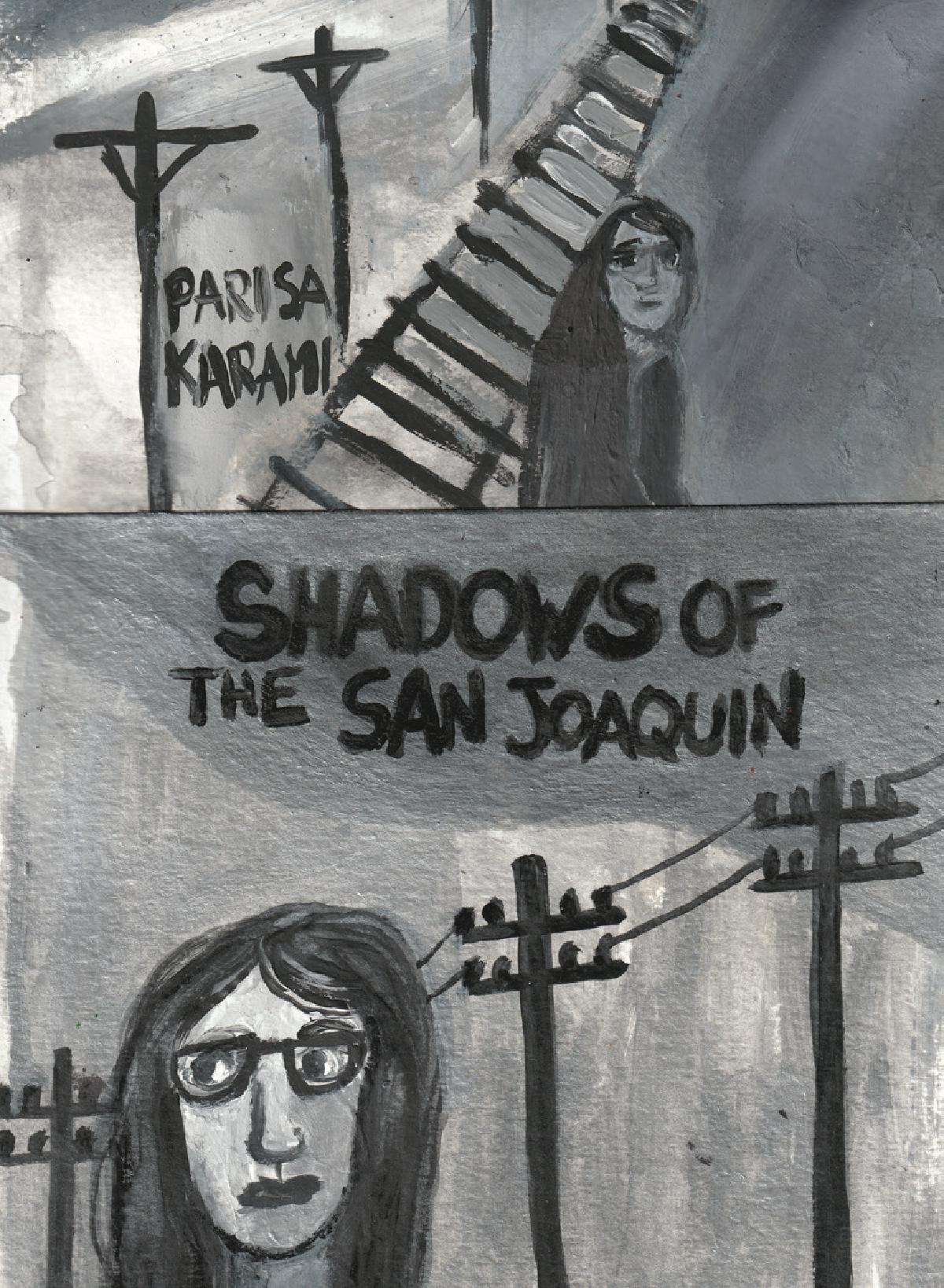
Praise for Shadows of the San Joaquin
- Nick Taylor of the band Gray:
- “As I was reading Shadows of the San Joaquin, I was transported into the mind of a young girl new to the USA with her immigrant family from Iran trying to navigate and understand the complex and abstract culture here. The distance between the two cultures playfully comes to light in her wonderfully illustrated gem, enlightening those of us not knowing what it’s like to be transplanted. I was most struck by the illustrations. Each plate is a work of art by itself, even if you just look at one page!”
- Vivienne Strauss, Artist:
- “Parisa’s painted images depict a terrific narrative, both evocative and often witty with a complete absence of pretension.”
- Jill Emery, Painter and Musician:
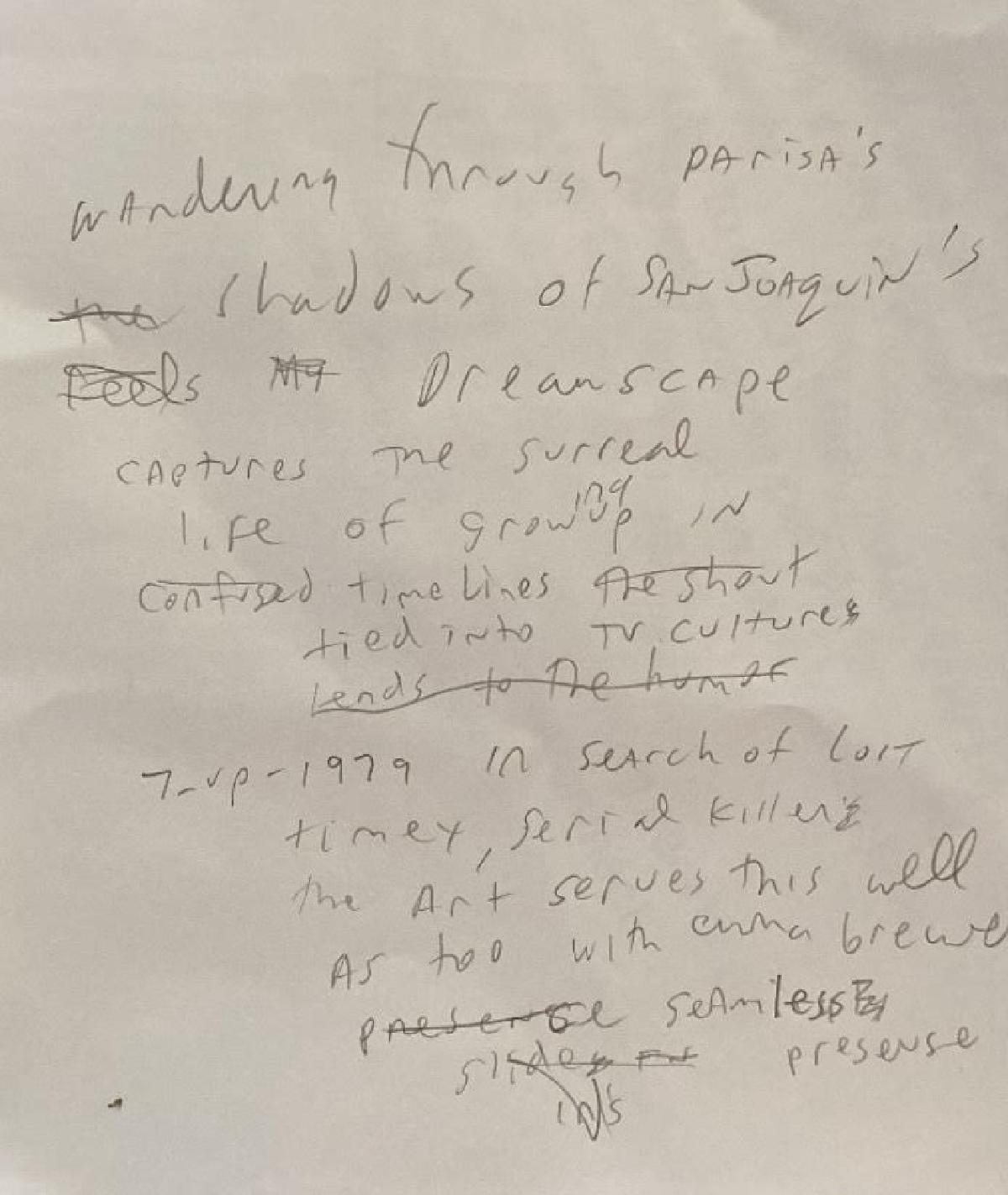
- Amir Ahmadi Arian, Author of Then The Fish Swallowed Him:
- “A poignant, probing memoir of displacement, filled with profound reflections on how the vicissitudes of global politics can ravage the lives of multiple generations of a family.”
- Allyson Mellberg-Taylor, Artist:
- “Reading Shadows of the San Joaquin was a pleasure and a privilege. It is poignant, funny, and absolutely stunning. The paintings are enthralling and I felt as though I was physically hearing Karami’s voice resonating as I read the text, which is so beautifully visually woven into each image. I found myself thinking about this book hours after reading it, and going back to look and look again. There is so much relatable angst, humor, sweetness, and experience of loss and change beautifully illustrated in the tender human experience portrayed in this book.”
- Dean Wareham, Musician and Author:
- “An affecting exploration on coming of age. From the Iranian revolution to Welcome Back Kotter, Tehran to Fresno to Brooklyn, Parisa Karami has not let her youth go to waste.”
- Lola Montes Schnabel, Artist:
- “Parisa Karami’s stylized hand draws rough pictures to her delicate words. Her personal story is told through illustrations that resemble ex votos, prayers, bench marks. [I]mages with narratives lead to the next image like a flip book delving to complete the memory of her life. Painted with the hand of innocence, written with maturity,
- This book is a testament to her childhood experiences, a way to heal all that’s past by depicting it in real time and capturing the life lessons that tend to disappear. In this book she has stopped to recollect nuances, sensations, first encounters, delving into her teenage psyche creating a notebook to trace the symbols formed her life passage.”
- Zhubin Parang, Producer, Head Writer, The Daily Show:
- “Funny and very sad. I really liked how the style gets across the aimlessness and memory blurring of suburban life. The writing is very sharp.”
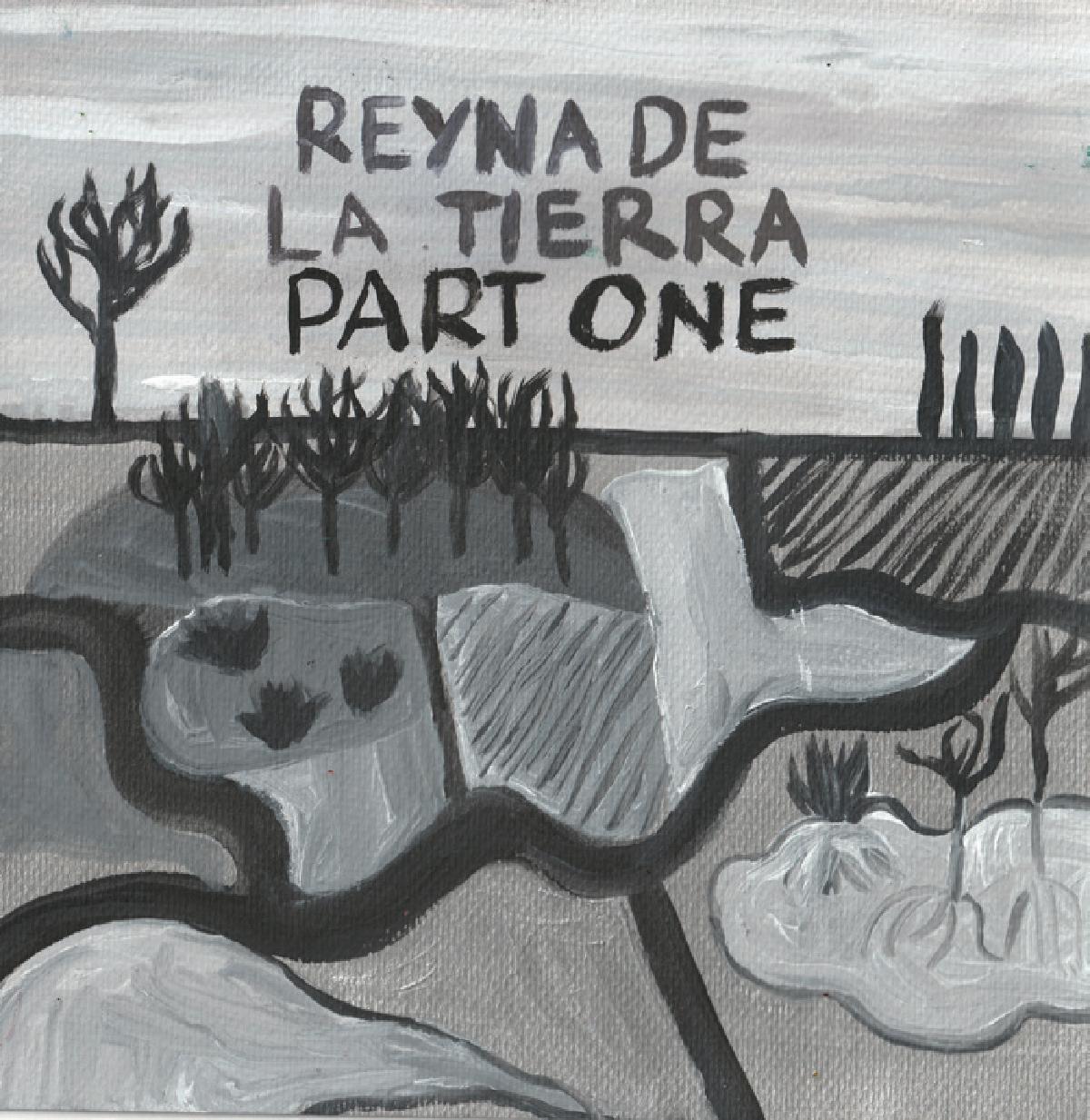
Introduction
by Emma Brewer
I have two paintings above my writing desk. One is an exuberant impression of Dr Seuss’s Cat in the Hat poised in front of a ballet barre, his elegant torso twisted to display a pert and bouncy bottom; he is a fitness instructor, and his barre classes are, as the painting advertises, fifty bucks a pop. The other is an earnest watercolor of Carson McCullers, with the quote:
We are torn between a nostalgia for the familiar and an urge for the foreign and strange. As often as not, we are homesick most for the places we have never known.
Although these two pieces could not be more tonally disparate, there is something in the Cat’s blitzed out eye, as if half-blind with delirium, and in McCullers’s lofty Mona Lisa gaze, that suggest they occupy the same universe. They are both haunted by what they know of human desires.
Both are, of course, by Parisa Karami, whose collection of haunted delights you now hold in your hands. The collection – Shadows of the San Joaquin – is part graphic memoir and part ensemble of surreal observations, all of it informed by Karami’s eye for the uncanny, for the fine balance between sorrow and hilarity. In her hands, scenes of dumpster diving for books are given the same poignancy and purpose as, say, scenes of leaving Iran for California as a child. The central tragedies of her youth in Fresno are drawn with the same sliver of off-kilter whimsy as, for example, choking on the grease from a deep-fried Oreo while having a Proustian spiral of memory.
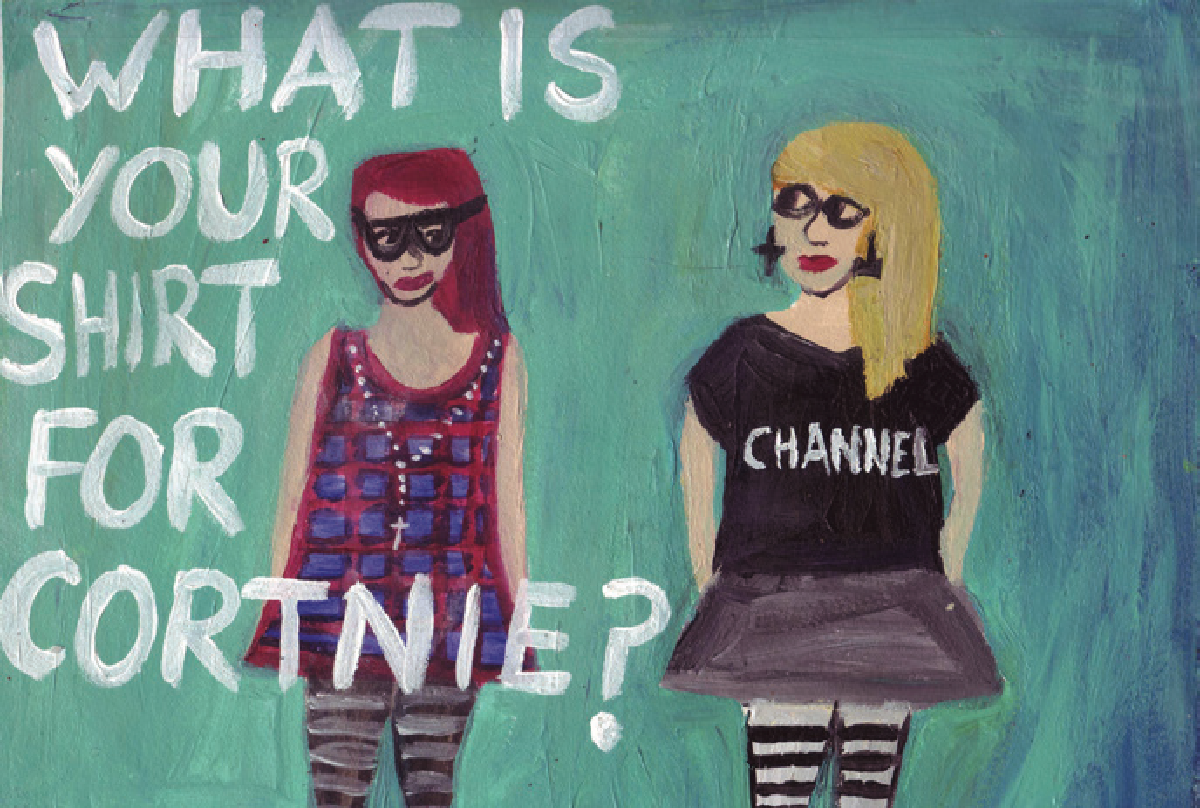
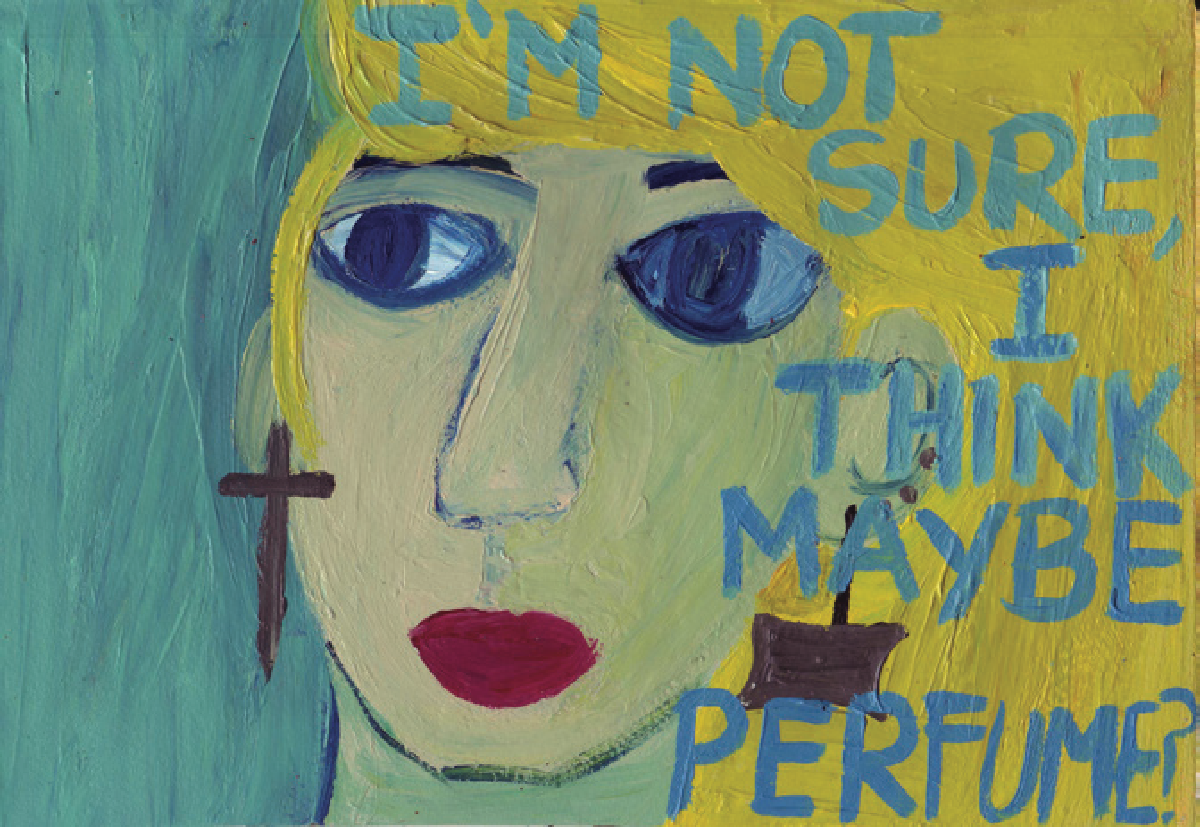
I first encountered Karami’s work on instagram; it was a 12-panel sketch of an exchange she’d witnessed at the old Balducci’s on 6th avenue, in which Wallace Shawn denied his participation in Eddie Murphy’s 2003 film The Haunted Mansion. With faces etched in hasty colored pencil, and quick scrawled lines of dialogue — a cashier insisting, Shawn doubling down — an entire spectacle is laid bare. The absurdity of an actor fibbing about his (easily verifiable) career choices, in, perhaps, the playful spirit of performance art. The incredulity of a Balducci’s employee who knows the truth. I could not stop laughing for days.
This was shortly after Karami and I first met, in a chance encounter at Lincoln Road playground. She approached my bench with a diaperbag full of Hell or High Watermelon wheat beer and fired up a conversation about the weather, doppelgangers, shadow work, and Tarkovsky, while I sat shell shocked in the shade. By the end of the day we were drafting our first collaboration, an elaborate take-down of Ayn Rand fans, which was picked up by McSweeney’s. (Right before our publicate date, the editor removed the climactic reference to Ayn Rand, making the joke essentially meaningless — and forever solidifying our camaraderie. For those who tend towards angst … what’s more fulfilling in this world than being misunderstood, together?)
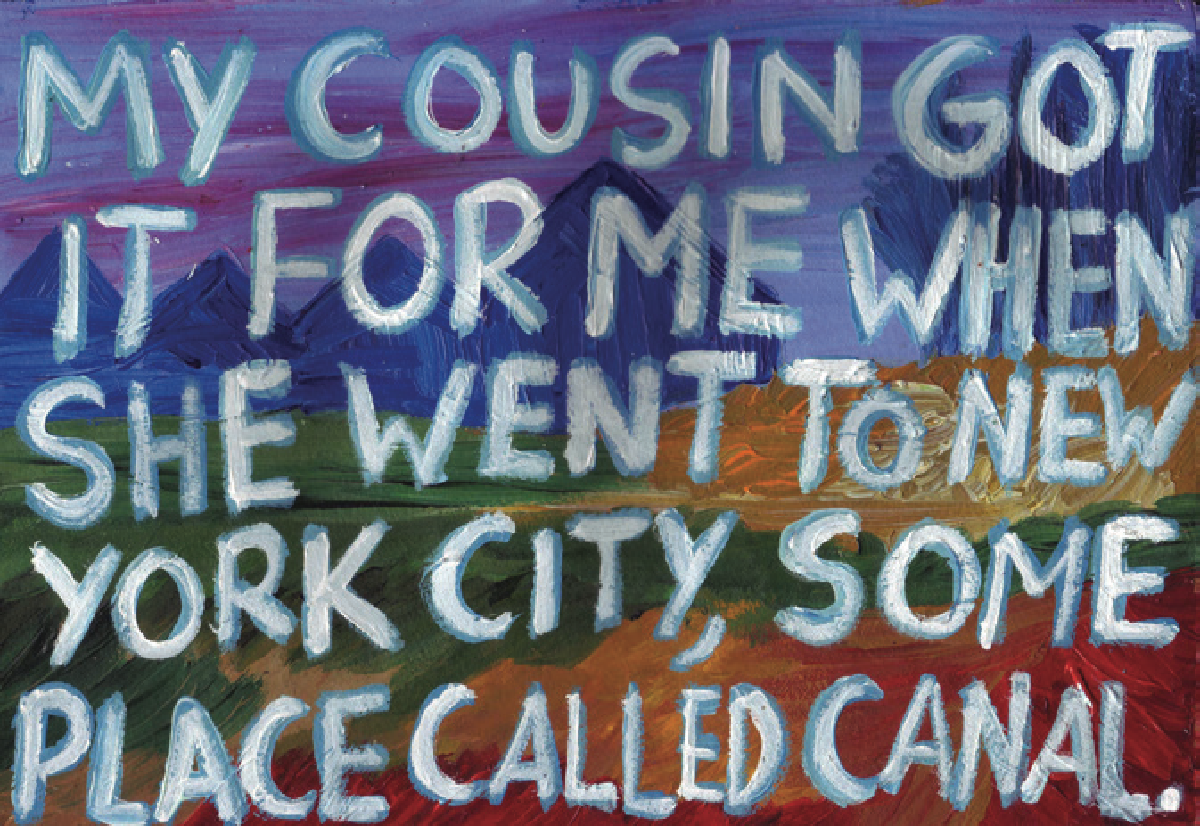
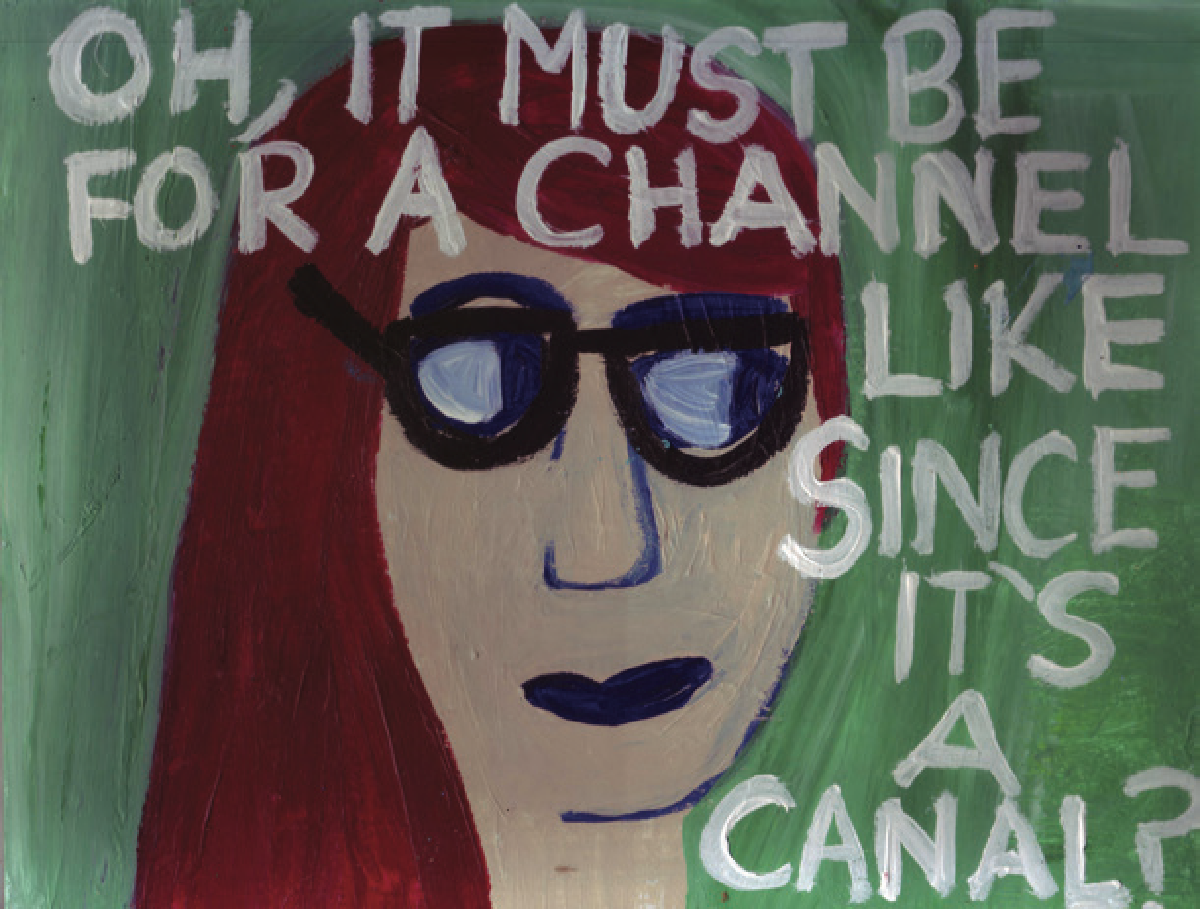
Years later, while working on a piece about the Iranian diaspora of the 1980s, Karami spoke to me about feeling like an outsider, about being drawn to stories of displacement and transition (she tags her work online with #outsiderart, a reference to being self-taught, and outside of the conventional art school world). If Roz Chast’s spaces are spiky and nervous, and Lynda Barry’s are loopy and nostalgic, then Parisa Karami’s spaces are wistful to the max. There is often a distant horizon and saturated sunset colors. Dialogue and narration blare across unearthly landscapes. When young Karami receives the phone call with news of her father’s accident, two nearly identical panels follow — her face in stillness. We all have to sit with her paralysis, with the gut punch unfolding. And yet, she finds unhinged humor everywhere, in the pain and sweetness of adolescence, in the healing beauty of friendship.
In her introduction to the story “Hoss Kojast” in The New Orleans Review, she writes, “This is a story about my father in the moment in which he knew his life’s pain had been seen by his only child — and what it takes to move forward from that vanishing point.” Shadows of the San Joaquin exists in looping cycles of memory; phone calls, dreams, and absolutely bonkers digressions pirouette from its core story. A lively fantasy, for example, of Agatha Christie frolicking for 11 days in the wilderness — a spirit in a state of wild growth. But every sequence, from the giddiest to the most emotionally significant, is an exploration of what fascinates Karami most, that is, human souls, moving forward through this life.
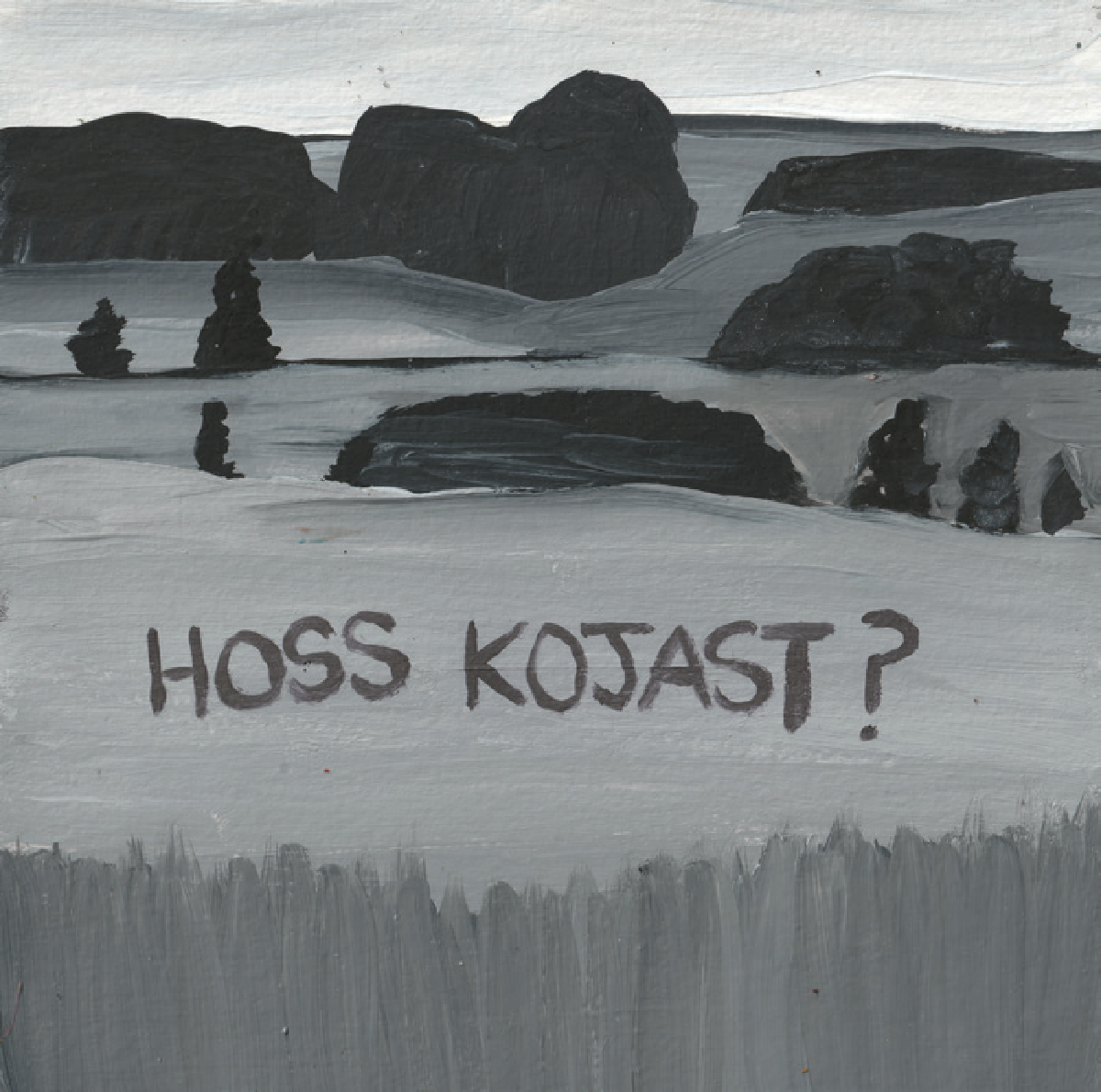
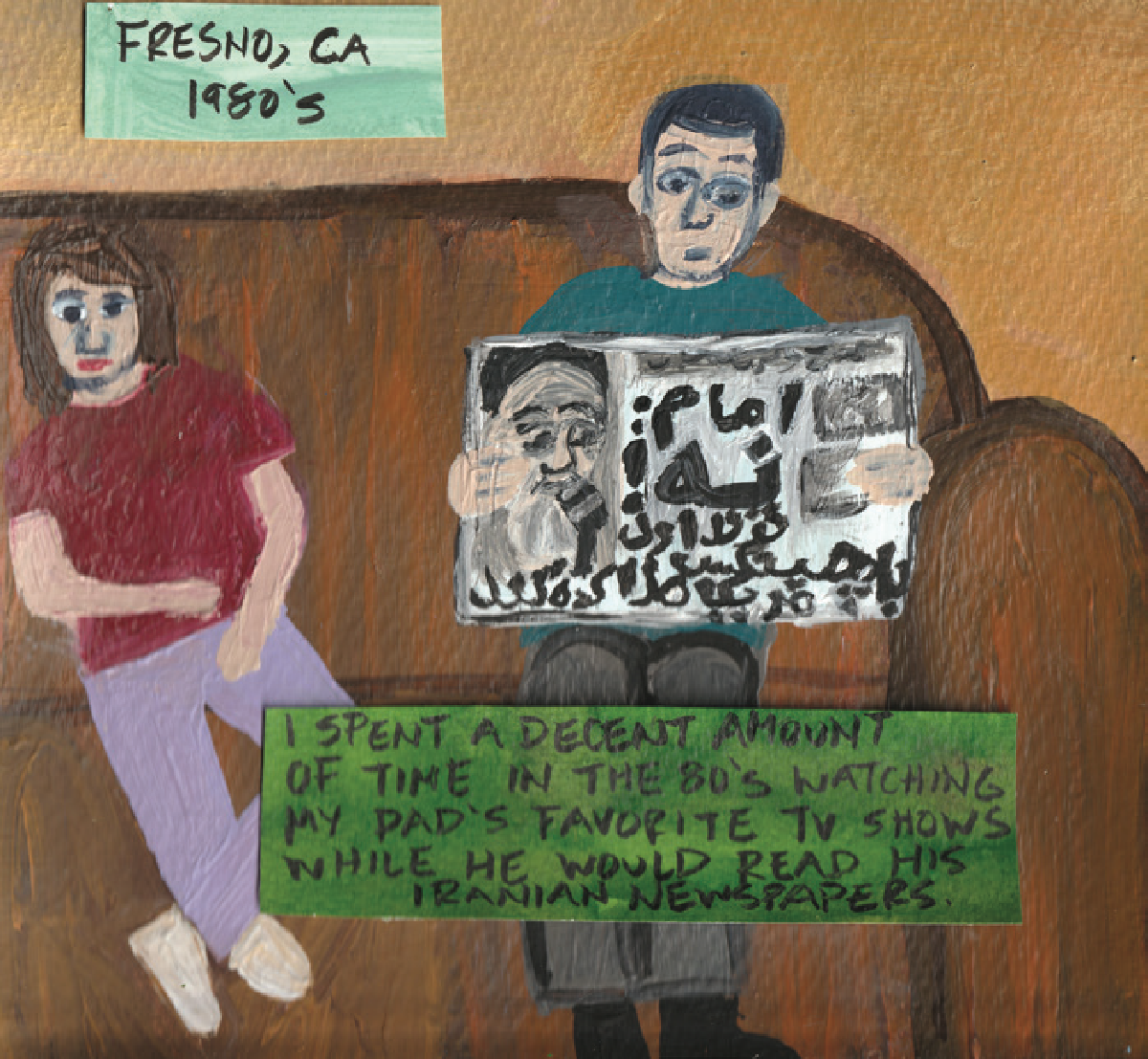
More praise for Shadows of the San Joaquin
- Jenny Molberg, author of The Court of No Record, Editor of Pleiades:
- “Provocative, satirically nostalgic, and unflinching in the face of difficult narratives of grief, diaspora, and art-making, Parisa Karami’s work challenges me to rethink traditional structures of personal writing. Evoking the powerful graphic tragicomics of Alison Bechdel and Maia Kobabe, Shadows of the San Joaquin dwells in the dream-space between visual art and literature, where truth bends and is most illuminated. This book is wild, fierce, and unforgettable.”
- Zoe Beloff, Artist, Filmmaker and Rootless Cosmopolitan:
- “For me, history comes alive through personal storytelling. Shadows of the San Joaquin is a fabulous addition to the great tradition of immigrant stories. Parisa Karami’s lovely, lively, goofy memoir breaks out of the mold of the graphic novel with its bold and colorful paintings into something so original you have to experience it for yourself!”
- Hushidar Mortezale, Artist and Designer:
- “There are no displacement clichés in this story about being an outsider witness to life, [told] with brilliance and humor. An antidote to identity art that is never too precious, and that I couldn’t help but see myself in. In just one panel, Parisa captures every complex nuance of being, from the memories of watching 70’s sitcoms with her late Baba that are a rerun treasure, [to] early 90s high school nowhereness in Fresno. [She] sums everyone up in head-to-toe non-judgmental truth, in a post-Brooklyn, anti-llectual academia art-world parenting life, sort of loving inventory way.”
- Monika Forsberg, Illustrator and Keen Swimmer:
- “Having just finished Parisa’s book at 7.58 am (about three minutes ago), coffee still untouched, I want to read the next one. I have been a fan of Parisa’s art and mind for a long time. When I jump on the train to Stonebridge’s park later today I will read this book again, slowly this time. I will pour over the images and relive the fuzzy warmth of the past and another life in another part of the world. I’m a bit jealous, but in a good way. I wish I had Parisa’s talent and wit.”
- Dame Darcy, Cartoonist, Filmmaker, Tarot, Musician, Painter, Dollcrafter:
- “Hiraeth: An untranslatable Welsh word. Homesickness, for a home which maybe never was. A sweet sadness, through spiritual longing and nostalgia, for ancient places to which we cannot return. Always pulling on the heart, a distinct feeling of missing something irretrievably lost. The echo of our soul’s past, and grief for this loss. Searching endlessly over the cracked asphalt of the parking lot of an abandoned building, the empty veiled winding roads of a moonlit dream world, the printed blue sky in a children’s book from long ago. It is nowhere and everywhere.
- This is the stuff that Parisa Karami’s work is made of. A blend of real life experiences and dreams. Wrought with a steady hand whose index finger vein is connected to the heart of her inner child.”
- Naz Riahi, Writer, Filmmaker:
- “At once weird and radical, Parisa Karami’s Shadows of the San Joaquin is a nostalgic gut-punch for anyone who has ever had to leave home and try to find it again among strangers. Evocative without being sentimental, Karami’s singular voice is deeply exciting.”
- Kelcey Ervick, Author of The Keeper:
- “I am obsessed with the are-they-paintings-or-are-they-comics-how-are-they-both visual stories that fill Shadows of the San Joaquin. Parisa Karami has an uncanny ability to make the mundane moments (high school parties and t-shirt labels) profound, and profound moments (deaths of teenagers and fathers) movingly mundane. With her chunky paint, expressive style, and a keen sense of humor, Karami takes readers through a visual fun house, leaving us dizzy and transformed.”
- John Pham, Cartoonist, Epoxy, J&K:
- “Parisa Karami’s beautiful work takes a wry, empathetic look at her own life and the world around her through the decades. Spanning the 70’s, 90’s, and all the way through to the online malaise of our current times. Parisa’s innovative storytelling and bold paintings guide us gently through a life very much like our own, with confident brush strokes connecting worlds as far apart as Iran, Crown Heights, and Fresno. I loved every page of this book.”
- Lourdes Sanchez, Artist:
- “Shadows of the San Joaquin is a freewheeling, clear sighted ride through the diaspora experience, grounded with generous humanism. Rising to the difficult task of capturing the ever-shifting moments in time of confusion, longing, sadness, tragedy, adventure, comedy, as well as just the quirks of daily life, Parisa Karami’s soulful paintings have the viewer feeling like a fly on the wall as the events go down. Brava!”
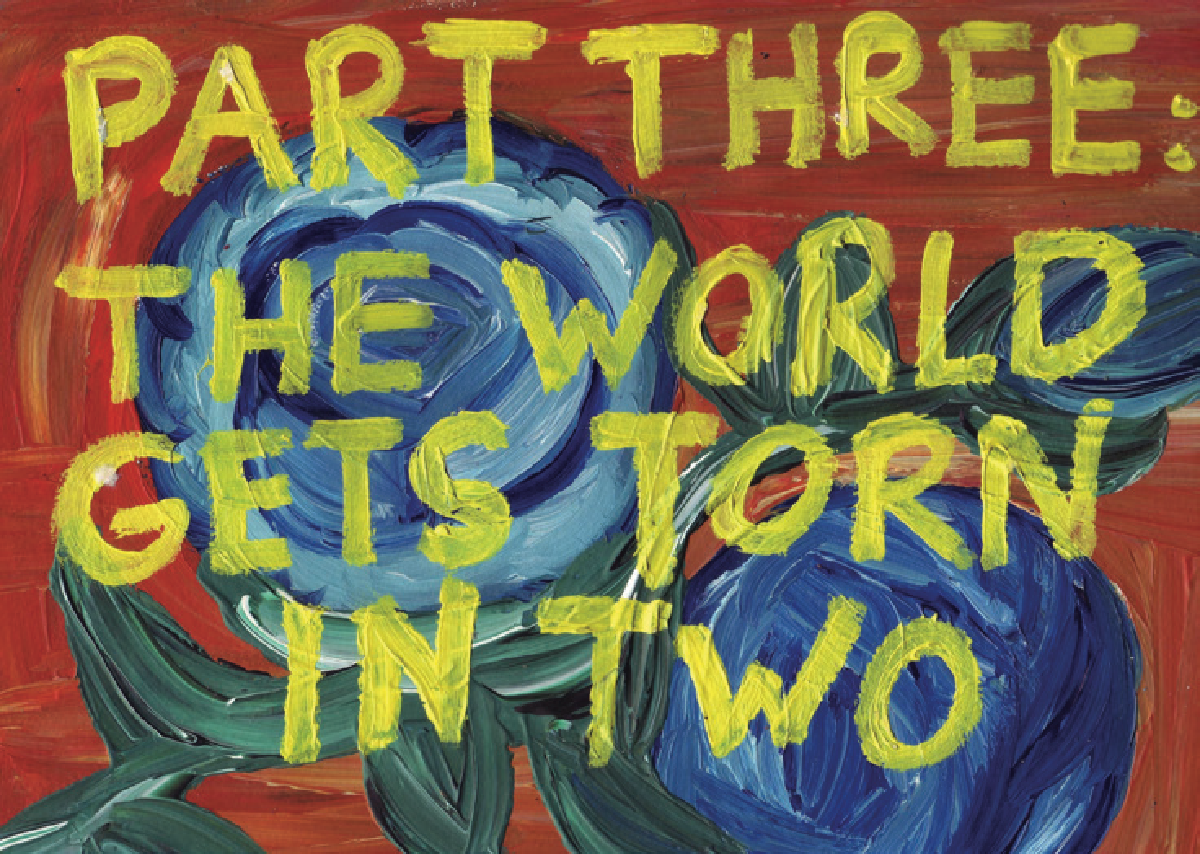
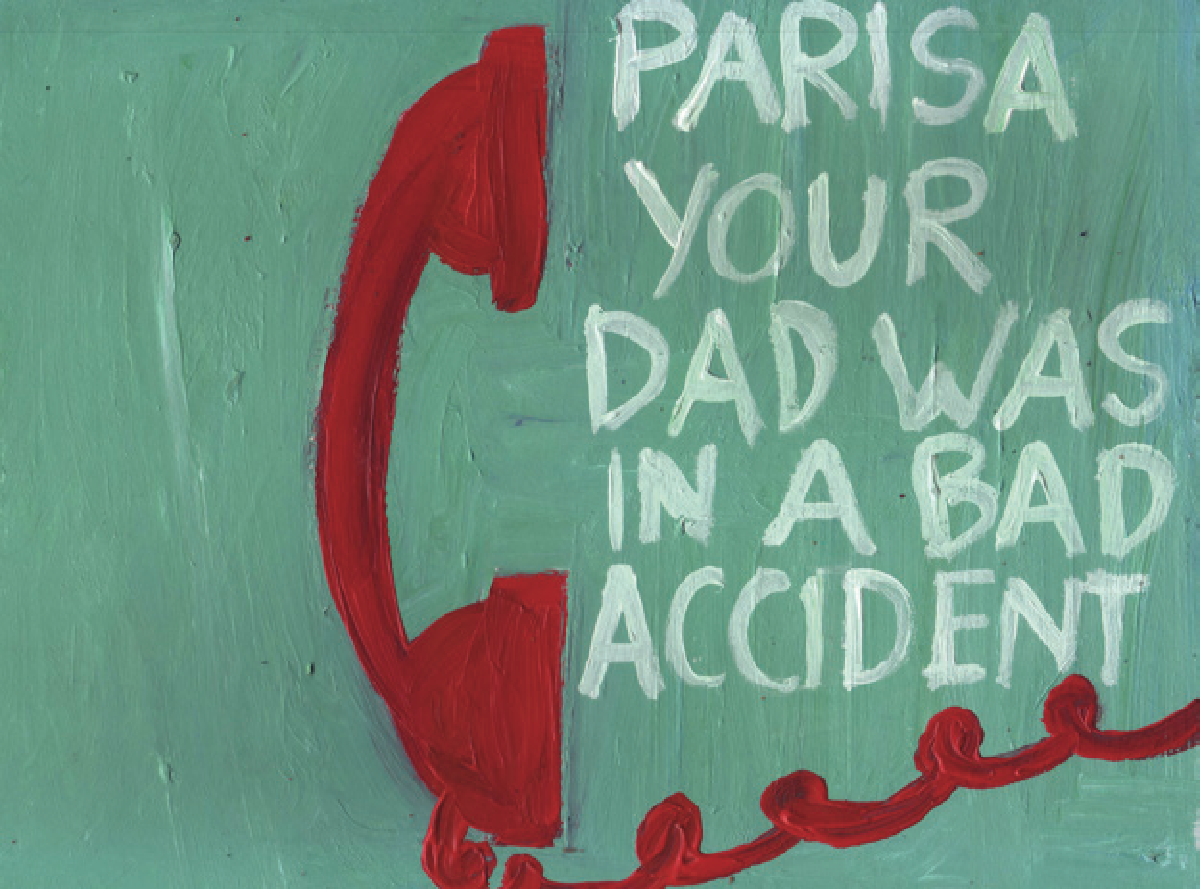
About the Author
Parisa Karami is an artist living in the Hudson Valley with her family. Recent works can be seen on media outlets such as McSweeney’s, Northwest Review, Pleiades, Aquifer, The Belladonna, New Orleans Review, Drunk Monkeys, MQR Mixtape, The Indianapolis Review, ANMLY and elsewhere.
Emma Brewer is a fiction and satire writer based in Vermont. Her work has been featured in The New Yorker, McSweeney’s, The Cut, Epiphany, Fractured Lit, and elsewhere.